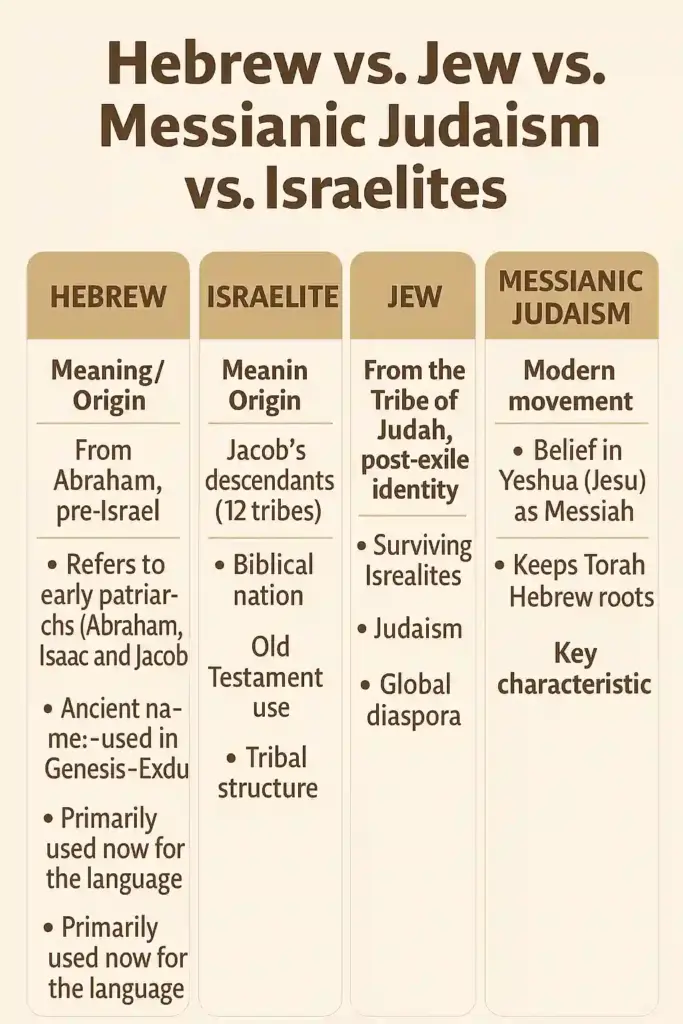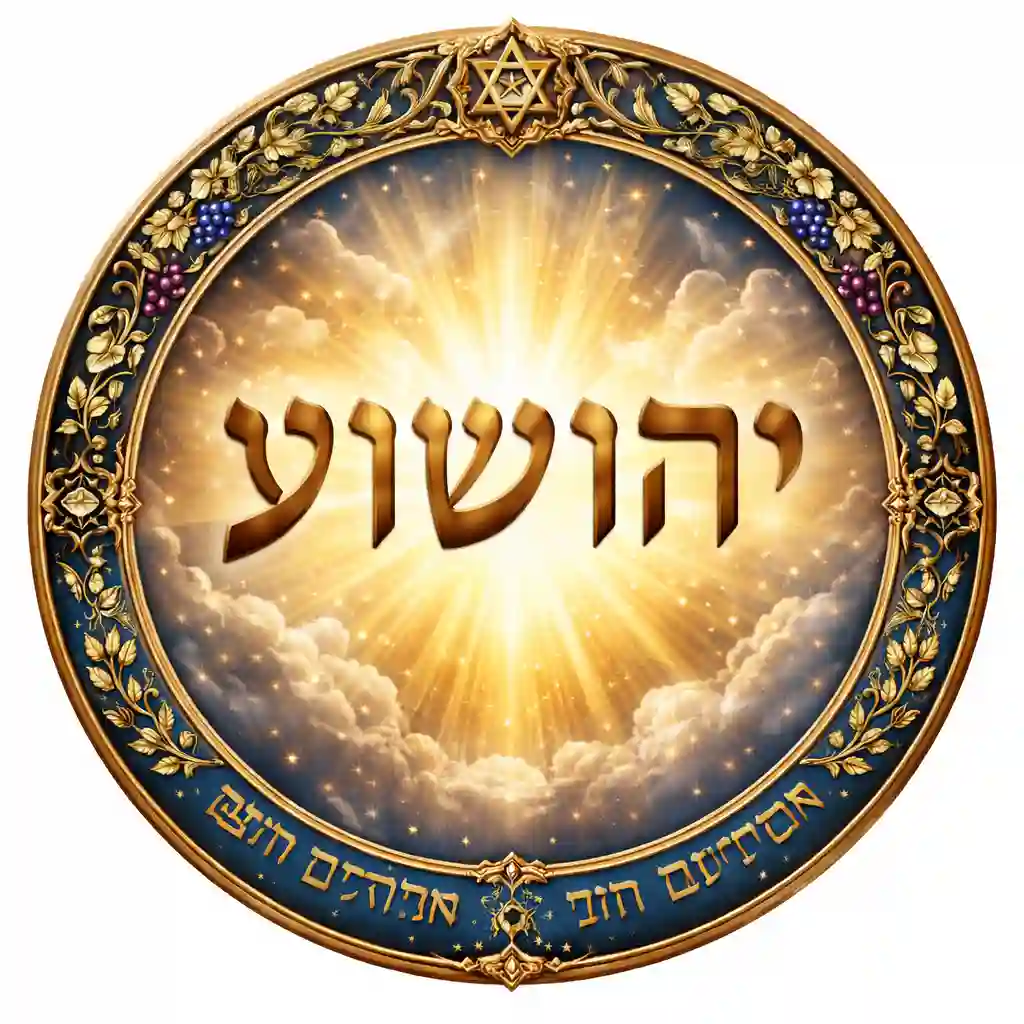Origin of the Chosen People
The terms Hebrew, Jew, Messianic Judaism, and Israelites are often used interchangeably, but they refer to different peoples, times, and beliefs. Here’s a breakdown to clarify the distinctions:
1. Hebrew
Meaning:
- “Hebrew” (עִבְרִי, Ivri) is the earliest biblical term used to describe Abraham and his descendants.
- The term is thought to derive from “Eber” (Genesis 10:21), an ancestor of Abraham, or from the Hebrew root meaning “to cross over,” possibly referring to Abraham crossing the Euphrates.
Usage:
- Refers to the ancient identity of the patriarchs—Abraham, Isaac, and Jacob.
- Used in early Scripture (Genesis–Exodus) especially when distinguishing the Hebrews from Egyptians or Canaanites.
Modern Use:
- “Hebrew” is now primarily used for the language, not the people.
2. Israelite
Meaning:
- Refers to the descendants of Jacob, who was renamed Israel (Genesis 32:28).
- Includes the twelve tribes of Israel, formed by Jacob’s sons.
Usage:
- Applies to the entire nation from the Exodus to the Babylonian exile.
- It emphasizes national and tribal identity more than religious affiliation.
Modern Use:
- “Israelite” is more of a biblical/historical term.
- Today, one might speak of “modern Israelites” in a poetic or spiritual sense, but not politically.
3. Jew
Meaning:
- From the tribe or kingdom of Judah, one of the twelve sons of Jacob.
- After the Babylonian exile, “Jew” became the common term for the surviving Israelites, since Judah was the dominant remaining tribe.
Usage:
- Refers to ethnic and religious identity—those who practice Judaism or descend from the Jewish people.
- Emerged prominently in post-exilic times (after 586 BCE).
Modern Use:
- “Jew” broadly refers to both religious Jews and secular ethnic Jews.
- Encompasses Ashkenazi, Sephardic, and Mizrahi traditions.
4. Messianic Judaism
Meaning:
- A modern religious movement that combines Jewish tradition with the belief that Yeshua (Jesus) is the promised Messiah.
Key Beliefs:
- Accept Yeshua (Jesus) as Messiah and Son of God.
- Keep many Torah commandments (Sabbath, feasts, dietary laws).
- Use Hebrew names and practices—calling Jesus “Yeshua” and God “Elohim” or “Adonai.”
Identity:
- Includes Jews who have come to faith in Yeshua and Gentiles who embrace the Hebrew roots of Christianity.
- Often distinguish themselves from both mainstream Christianity and Rabbinic Judaism.
Modern Use:
- Controversial: Judaism does not accept Messianic Judaism as a form of Judaism, while many Christians view it as too “legalistic” or “Jewish.”
Summary Table
| Term | Origin/Focus | Identity Type | Key Characteristics |
|---|---|---|---|
| Hebrew | Abraham, pre-Israel | Ethnic/linguistic | Ancient name; early patriarchs; now the language |
| Israelite | Jacob’s descendants (12 tribes) | National/tribal | Biblical nation; Old Testament use; tribal structure |
| Jew | Tribe of Judah, post-exile identity | Ethnic/religious | Surviving Israelites; Judaism; global diaspora |
| Messianic Jew | Modern movement | Religious/spiritual | Believes in Yeshua as Messiah; keeps Torah; Hebrew roots |

Conclusion:
Explore the differences between Hebrew, Jew, Israelite, and Messianic Judaism—and discover your identity in the end times through Yeshua and Torah truth.
“And if you belong to Messiah, then you are Abraham’s seed, and heirs according to promise.”
— Galatians 3:29, TS2009
“For I am YHWH your Elohim. And you shall be set-apart to Me, for I YHWH am set-apart, and I have separated you from the peoples to be Mine.”
— Leviticus 20:26, TS2009
“Come out of her, My people, lest you share in her sins, and lest you receive of her plagues.”
— Revelation 18:4, TS2009
Discover more from Master Yahshua Messiah
Subscribe to get the latest posts sent to your email.
